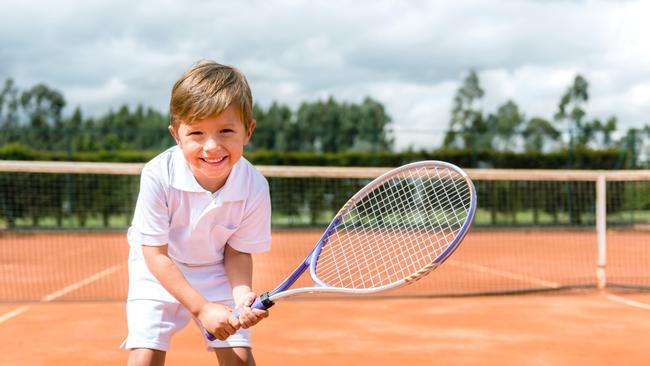
Footy matches were played at the “rec”, the recreation reserve. Spectators would watch from their cars parked at the footy oval’s fence. We would toot the horn whenever Terang scored a goal. At three-quarter time men and boys from the crowd would huddle around the players in the middle of the ground and listen to the coach’s pep talk. He said we were being too complacent, we needed to put ourselves in front, we really had to want the ball, we needed to find open space. Out there it smelt of liniment and oranges and utter determination to win against arch rivals Camperdown.
My two sisters played netball. One was a goalie. The other played wing defence. I know all the positions. I know about stepping. I watched season after season as a dutiful younger brother. Dad was a timekeeper at swimming meets (which we called carnivals). Trophies were proudly displayed on the mantelpiece above the open fire in the lounge room of our housing commission house. Mum kept clippings of our sporting achievements and an exercise book recording personal best swimming times by date and pool location. I would spend hours every week training and talking about upcoming games and competitions.
The sport I really liked was basketball. It was, I thought, more creative than football and involved more complex teamwork. There is no rest in five-a-side basketball; everyone must contribute. The basketball court was a converted butter factory with ceramic tile flooring. Tennis and netball were played on asphalt courts attached to church grounds across the district from Glenormiston to Ecklin and from Boorcan to Panmure, places few would know about. But I do know about these places. I know about the competition, the skills, the players, the personalities, the parental support networks that combined to deliver country kids like me the opportunity to experience the sheer exhilaration of winning and the utter despair of losing. The facilities were basic but they were incidental to the intensity of the matches played and the lessons learnt.
I left Terang at 18 to go to university in Melbourne. I did not continue with sporting interests via clubs; these days I ride a bike for exercise. For many years I looked back and appreciated the fitness that my exposure to country sport delivered. But later in life I see the experience as something much broader. It taught me that some people handle success better than others. That being a good loser is important, but even more important is being a gracious winner. Humility in victory and/or in success is a rare human quality.
Looking back I can see that country sport delivered what we now call social cohesion. It gave everyone in the town a place as a player, a barracker, a volunteer, a contributor to the tribe. The best lessons in life are learnt not necessarily in achieving Olympian victories but in the humility of realising that sometimes someone is better skilled, more talented, has more natural ability and has trained much harder than you. Kids’ sport teaches lessons that last a lifetime.




You may think there was not much to do growing up in the small town of Terang in western Victoria in the 1960s, but nothing could be further from the truth. Everything revolved around church, school, dad’s work at the local co-op, and sport. I played football, basketball, tennis, cricket, squash and golf, as well as swimming competitively. There was a cycling club too but that would have required an expensive racing bike. My three older brothers were also sporty, as were most young people in the town.